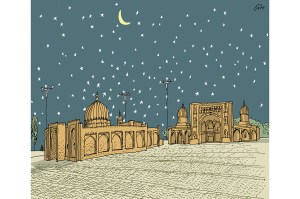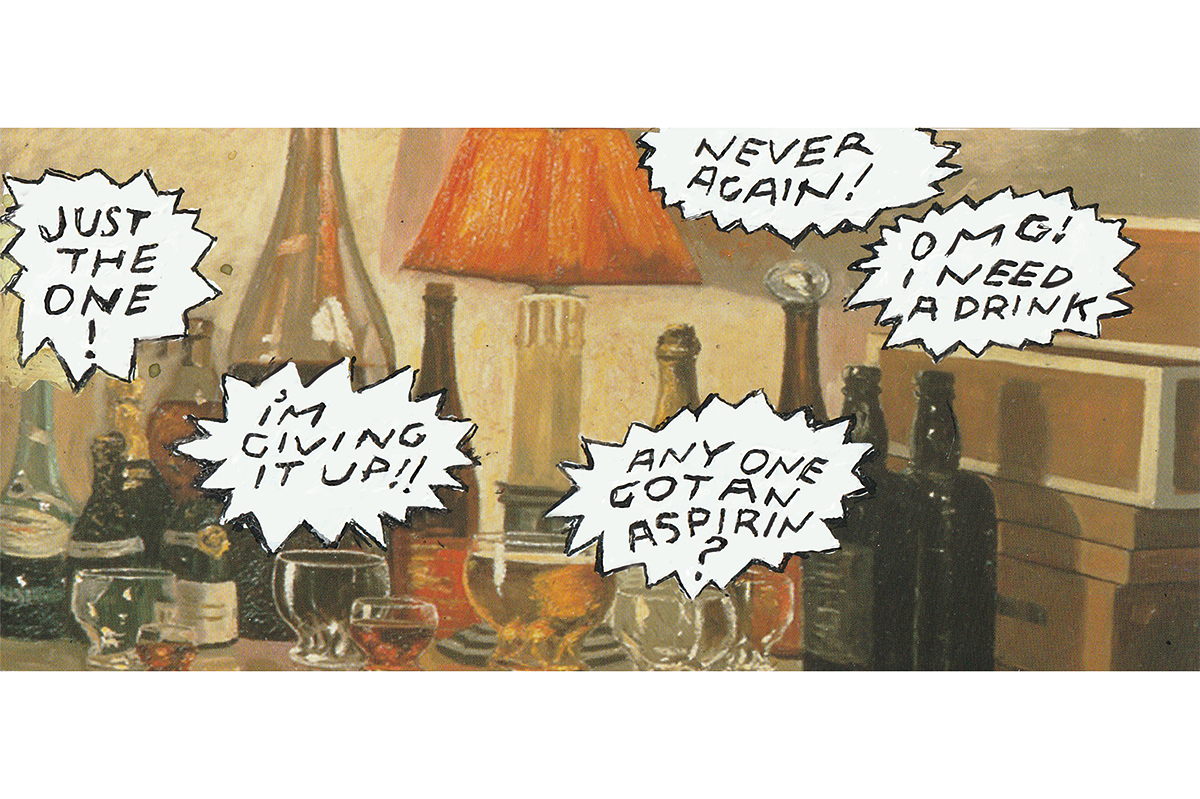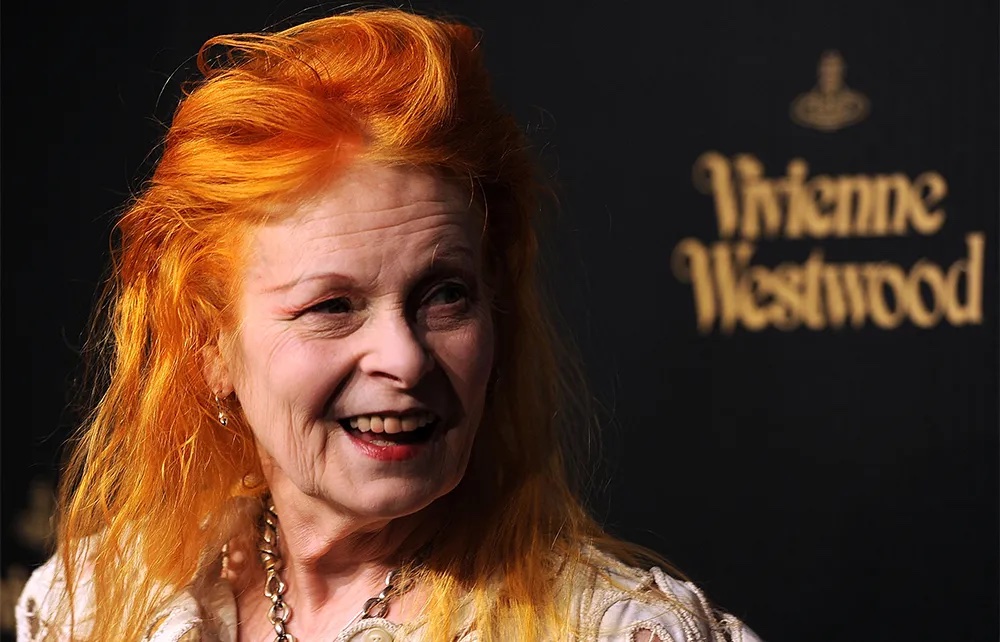There’s a strange, near-psychedelic effect that hits you when you travel from an aging country to a young one. It’s not in the buildings – although the buildings may be new and hastily tiled – and it’s not necessarily in the politics, culture or economic vibe. No, the shock is more human, and intimate. It is in the faces. And the noise. And the diapers.
I’ve just returned from a few weeks in Central Asia: Uzbekistan, Kazakhstan, Kyrgyzstan. And while these nations differ in history, ethnicity and landscapes, two things bind them all. First, they all have an inexplicable penchant for a stodgy rice dish called plov (in Samarkand I bought a T-shirt bearing the slogan “All You Need is Plov”). The second is that they are all young. Wildly, exuberantly young.
The median age in Kyrgyzstan is about 25. In Britain it’s 40. In crèche-crazy Sweden it’s 41. In France it is a creaky 42. The United States, which we always think of as a “young country,” clocks in at a too-late-for-kids 39. Germany is a doddery 46, Italy a decrepit 48, and in Japan a close-to-retiring 50. On the island of Jeju, South Korea, it is an astonishing 59, and wow, do you notice. Seeing a child on Jeju is like seeing a leprechaun in Ireland – a glimpse of a miraculous small thing which makes you tell excitable tales in whisky bars.
One big reason Central Asia is so young is that they are still pumping out sprogs. Why this might be is much debated. Is it Islam? Well, maybe – except Islam in Central Asia is fiercely policed. Imams need licenses. Niqabs have been banned. Is it women doing traditional roles? Again, probably not, as one of the few positives of communist rule in the ’Stans is that women were liberated – and still are. An hour in Tashkent or Almaty will convince you of that.
Yes, Central Asia has its political problems – don’t we all – and Russia for a neighbor (oh dear) and definite human rights issues (eek!). But the women? They are happy and confident, unveiled and uncowed. Hurray.
Either way, we won’t solve the mighty global puzzle of birthrates looking at Islam or communism, so let’s go back to the feels. What does it feel like to be in a young country? In a few words: peculiar, sad, disconcerting, wild, grand and energizing.
For a start, you, the visitor, feel tragically old, if you are anywhere north of 35 (and I am far north). In Astana and Bishkek I felt like stooping Gandalf visiting a particularly cheerful Shire – peering over my long gray beard at elegant elves, jocular hobbits and handsome Riders of Rohan.
Being in a young country is also annoying. Because, my God, the babies and the littl’uns. They are everywhere. Entire supermarkets are apparently set aside by the state for toddlers to have tantrums. Elevators anywhere take a wearyingly long time to arrive because so many families are loading and offloading strollers, baby carriers, tired infants.
It is noisy. Because kids and young people are noisy. They scream, wail, giggle, whoop, and get massively and volubly overexcited by mediocre ice cream. As they grow into teens they get even noisier – demanding horrible music, openly laughing in streets, riding flatulent mopeds, gathering in random clusters to be garrulously beautiful without even realizing it.
And there’s one of the crucial upsides: the constant stream of human beauty. The people of Central Asia are alluring anyway – a serendipitous cocktail of Persian, Russian, Chinese, Mongol genes has sorted that out – but when the median age is 25, that means wherever you look you tend to see beautiful young people at their physical best. You see them so often it’s like there’s a sudden fashion for beautiful young people: the way there was a sudden fashion for Burberry check in southern Europe in 1995.
The people of Central Asia are alluring anyway – a serendipitous cocktail of Persian, Russian, Chinese, Mongol genes has sorted that out – but when the median age is 25, that means wherever you look you tend to see beautiful young people
The effect is uplifting. As you walk through a young country, you feel the pulse of animated life. The fierce but natural optimism of a place where most people are under 30, and many are under ten. The UK last had a median age of 25 in the days of Peak Empire, when it exported people to half the world, and conquered the rest. QED.
This generational freshness even seeps into infrastructure. In Kyrgyzstan, everyone seems to have a smartphone QR code that pays for everything, everywhere, instantly. They’ve gone beyond contactless. And Kyrgyzstan isn’t rich. It’s simply young, and therefore full of early adopters.
The psychic lift you get from the young is sometimes so intense it is painful, because it reminds us westerners of what we’ve lost. When you live in a developed country where the median age is about 43, you grow unconsciously accustomed to the ambient muzak of decay. The news becomes an endless dirge, the culture a requiem. “Who will nurse the elderly.” “No one goes to pubs any more.” “Everyone must stay indoors to protect 90-year-olds from scissors.”
We in the West live in fearful, cranky old societies. We are ruled by midwit people too scared to do anything, policing a nation too anxious to say anything, and populated by citizens who are, sadly, too tired to care.
But not in Central Asia. Sit down, as I did, on a bench in sunny Bishkek. The person next to you will likely be 23, not 58. Therefore, the person next to you is thinking about a start-up, or a date, or an exciting new job; they are not thinking about their pension, the decline of grammar, the perils of an aging society or that weird ache that might be hair cancer.
This sunny mood infects the next person, and the next person. There might be something great round the next corner. Things can and will get better. So you stand up and stride into a future – because the future is not a thing to fear, it is something to eagerly embrace. If all this entices you to go to Central Asia, then do: it’s amazing. Just avoid the plov and buy a “Plov Will Tear Us Apart” T-shirt instead. They make you look younger. Probably.


























Leave a Reply